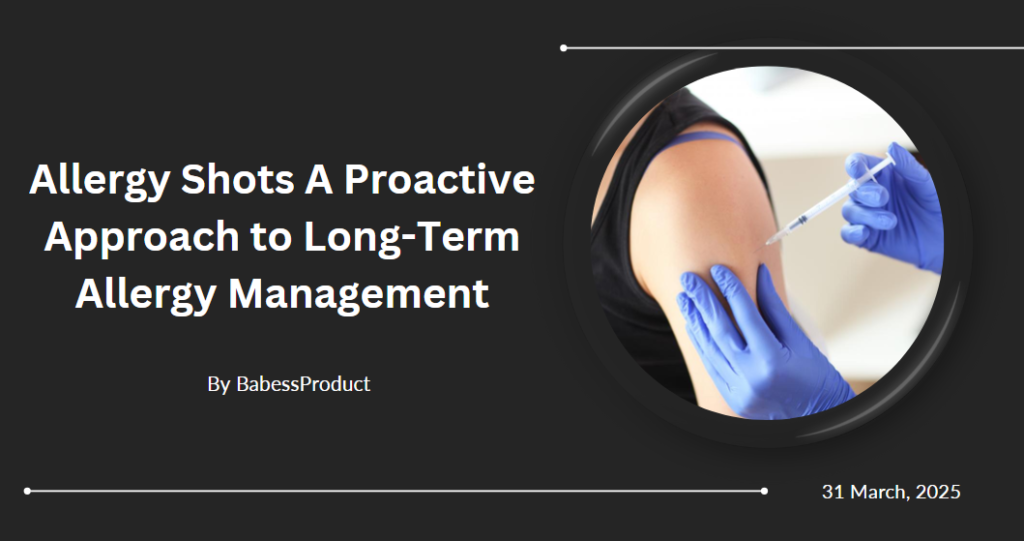Allergies can range from a seasonal nuisance to a persistent health issue. For many, chronic allergies not only disrupt daily life but also have the potential to worsen over time. Allergy shots, also known as allergen immunotherapy, offer a proactive approach to managing and potentially mitigating the progression of these conditions. Exploring how these shots can prevent allergies from escalating into more severe problems and the general benefits can be helpful.
What Are Allergy Shots?
Allergy shots, or allergen immunotherapy, are a long-term treatment designed to diminish allergic reactions to specific substances. They gradually introduce small amounts of the allergen into the body, allowing the immune system to develop tolerance over time. Common allergens treated with this method include pollen, mold, pet dander, dust mites, and insect stings.
Unlike medications that address immediate symptoms, allergy shots target the root cause of allergic reactions. This makes them a unique option for those with chronic allergies who seek a more enduring solution. While some treatments manage symptoms temporarily, allergen immunotherapy aims to reduce the severity and frequency of reactions over time.
What Are The Benefits?
Allergen immunotherapy offers several potential benefits for individuals with chronic allergies. While results can vary based on individual responses and adherence to the treatment plan, the following advantages are often associated with this approach:
- Reduced Symptom Severity: Over time, many individuals report a decrease in the intensity of allergic reactions upon exposure to allergens.
- Decreased Medication Dependence: By addressing the root cause of allergies, patients may find reduced reliance on allergy medications such as antihistamines or nasal sprays.
- Improved Management of Seasonal Allergies: For those with seasonal allergies, immunotherapy can lessen the burden of symptoms during peak pollen seasons, helping reduce the overall impact on daily activities.
What Is The Process?
The process of undergoing allergy shots involves several steps, each guided by medical professionals to follow the appropriate treatment protocol.
- Initial Consultation and Testing: An initial consultation is necessary to determine eligibility for immunotherapy. During this phase, the allergens responsible for triggering symptoms are identified through a series of tests, including skin prick or blood tests. Once the allergens are pinpointed, a personalized treatment plan is created.
- Build-Up Phase: The build-up phase requires weekly or bi-weekly injections containing small but gradually increasing allergen concentrations. This phase typically lasts three to six months and helps the immune system adapt to exposure.
- Maintenance Phase: Patients transition to the maintenance phase after completing the build-up phase. During this stage, injections are administered less frequently, usually every three to four weeks, while maintaining effectiveness. This phase can continue for three to five years, depending on the individual’s treatment goals and progress.
- Monitoring and Adjustments: Each injection session involves monitoring to check for any adverse effects. Over time, the treatment may be adjusted to optimize its impact on reducing allergic symptoms. Regular follow-up visits help track progress and modify the treatment plan.
Book Your Allergy Consultation Today!
If you’re exploring long-term strategies to address chronic allergies, allergy shots offer a proactive and evidence-based approach. They work by targeting the underlying cause of allergic reactions rather than simply managing symptoms, making them a valuable tool in preventing allergies from progressively worsening. Interested in learning how allergen immunotherapy could benefit you? Schedule a consultation with a trusted allergy specialist today to explore your options and take the first step toward long-lasting allergy management.

